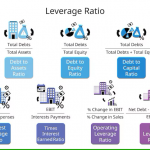Are you considering investing in a Special Purpose Acquisition Company (SPAC)? Before you dive into this new and exciting investment opportunity, it’s crucial to understand the importance of due diligence.
Due diligence refers to the comprehensive analysis and investigation that should be conducted before making any investment decisions. By thoroughly researching a SPAC, you can mitigate risks and make more informed choices.
In this article, we will explore the significance of due diligence when considering SPAC investments. We will delve into the key factors to consider, such as the management team’s experience, the SPAC’s track record, and the target company’s viability. Additionally, we will provide essential tips to help you conduct effective due diligence, from reviewing SEC filings to analyzing financial statements.
Understanding the importance of due diligence will not only protect your investment but also increase your chances of success in the dynamic world of SPACs. So, let’s get started and empower yourself with the knowledge and insights needed to make sound investment decisions in SPACs.
What is a SPAC?
A SPAC, or Special Purpose Acquisition Company, is a type of investment vehicle that is created solely for the purpose of acquiring another company. Unlike traditional initial public offerings (IPOs), SPACs are already listed on a stock exchange and raise capital through an IPO with the intention of using these funds to merge with or acquire a target company. SPACs have gained significant popularity in recent years due to their potential for high returns and the flexibility they offer to investors.
SPACs are typically formed by experienced investors, known as sponsors, who have a proven track record in identifying and executing successful transactions. These sponsors are responsible for selecting a target company and negotiating the terms of the merger or acquisition. Once a target company is identified, the SPAC will seek shareholder approval for the transaction, and upon completion, the target company will become a publicly traded entity.
Understanding the SPAC investment process
Investing in a SPAC involves a unique process that differs from traditional investments. When you invest in a SPAC, you are essentially buying shares in a shell company that has no operations or assets. The funds raised through the IPO are held in a trust account and can only be used for the acquisition of a target company. As an investor, you have the option to redeem your shares and receive a portion of the invested capital back if you do not agree with the proposed merger or acquisition.
Once a target company is identified, the SPAC will enter into negotiations and conduct due diligence to ensure the viability and suitability of the target. This includes evaluating the target’s financial performance, growth prospects, competitive landscape, and any potential risks or legal issues. If the negotiations are successful, the target company and the SPAC will merge, and the target company will become publicly traded.
Benefits of SPAC investments
Investing in SPACs offers several benefits that make them an attractive investment opportunity for many investors. Firstly, SPACs provide access to investment opportunities that may not be available to individual investors. By pooling funds together, SPACs have the financial resources to pursue large-scale acquisitions or mergers that may not be feasible for individual investors.

Secondly, investing in a SPAC allows investors to benefit from the experience and expertise of the SPAC’s management team. The sponsors of a SPAC are typically seasoned professionals with a successful track record in identifying and executing profitable transactions. This expertise can provide investors with confidence in the investment and increase the likelihood of a successful outcome.
Another benefit of SPAC investments is the flexibility they offer to investors. Unlike traditional IPOs, where investors are locked into their investment until a company goes public, SPAC investors have the option to redeem their shares if they do not agree with the proposed merger or acquisition. This provides investors with an additional level of control and allows them to exit the investment if they are not satisfied with the direction the SPAC is taking.
Risks and challenges of SPAC investments
While SPAC investments offer numerous benefits, it’s essential to be aware of the risks and challenges involved. One of the main risks is the potential for a failed merger or acquisition. Not all acquisitions or mergers are successful, and if a SPAC fails to identify a suitable target or negotiate favorable terms, investors may not realize the expected returns.
Additionally, the lack of operating history and financial performance of SPACs can make it challenging to assess their value and potential. Unlike established companies with a track record, SPACs are essentially blank-check companies, making it crucial to conduct thorough due diligence to evaluate their viability.
Another challenge is the potential for dilution of shares. When a SPAC merges with a target company, additional shares are typically issued to fund the transaction. This can lead to existing shareholders’ ownership stake being reduced, potentially impacting the value of their investment.
Due Diligence in Investing
Due diligence is a comprehensive investigation or audit of a potential investment or product to confirm all facts, such as reviewing all financial records, plus anything else deemed material. It is a critical process in the world of investing as it helps investors make informed decisions by thoroughly examining all available information before entering into an agreement or transaction.
In the context of investing, due diligence involves scrutinizing the financial statements, management team, competitive landscape, industry trends, legal aspects, and potential risks associated with an investment opportunity.
Due diligence plays a crucial role in investing as it helps investors mitigate risks and make well-informed decisions. By conducting thorough due diligence, investors can gain a deeper understanding of the investment opportunity, its potential for growth, and the associated risks.
This process also allows investors to identify any red flags or discrepancies that may impact the investment’s performance. Moreover, due diligence helps in validating the claims made by the investment opportunity and ensures that the investment aligns with the investor’s financial goals and risk tolerance.
In investing, due diligence serves as a risk management tool by providing investors with the necessary information to assess the potential risks and rewards associated with an investment. Through due diligence, investors can uncover any hidden liabilities, regulatory issues, or other factors that may impact the investment’s future performance.
Furthermore, conducting due diligence demonstrates an investor’s commitment to making sound investment decisions and can ultimately contribute to the long-term success of their investment portfolio. Therefore, due diligence is an indispensable process that aids investors in making prudent investment choices while minimizing potential risks.
Impact of Due Diligence in Different Investment Sectors
- Real Estate Investment: Due diligence is paramount in real estate investment as it involves extensive scrutiny of property-related documents, zoning laws, environmental assessments, and potential liabilities. Thorough due diligence helps investors identify any hidden issues such as property defects, legal disputes, or environmental hazards, ensuring that they make well-informed decisions and avoid costly surprises post-acquisition.
- Venture Capital and Private Equity: In these sectors, due diligence involves evaluating the company’s business model, market potential, intellectual property rights, and management team. It helps investors assess the viability and growth prospects of the target company, enabling them to make informed investment decisions and negotiate favorable terms.
- Stock Market Investments: Due diligence in stock market investments encompasses analyzing financial statements, market trends, competitive positioning, and regulatory compliance of publicly traded companies. This process aids investors in making informed buy or sell decisions, enabling them to assess the intrinsic value of a stock and its potential for long-term growth.
- Commodity Trading: Due diligence in commodity trading involves analyzing supply and demand dynamics, geopolitical factors, and macroeconomic trends. It enables investors to assess the fundamental factors affecting the prices of commodities and make informed trading decisions, thereby mitigating risks associated with price volatility.
- Cryptocurrency and Blockchain Investments: Due diligence in this sector involves evaluating the technology, security features, regulatory landscape, and market adoption of cryptocurrencies and blockchain projects. Thorough due diligence helps investors identify legitimate projects with real-world applications, while avoiding fraudulent schemes and speculative investments.
Due diligence plays a pivotal role across various investment sectors by empowering investors to make well-informed decisions, mitigate risks, and uncover potential opportunities for growth. The impact of due diligence extends beyond financial analysis, encompassing legal, regulatory, and operational aspects, thereby safeguarding investors’ interests and contributing to the overall integrity of the investment landscape.
Due diligence in SPAC investments
Due diligence plays a critical role in mitigating risks and making informed investment decisions in SPACs. By conducting thorough due diligence, investors can gain a deeper understanding of the SPAC, its management team, and the target company, allowing them to assess the investment’s potential and identify any potential red flags.
Key factors to consider in due diligence
When conducting due diligence on a SPAC, there are several key factors to consider. Firstly, it’s essential to evaluate the experience and track record of the SPAC’s management team. Look for sponsors with a successful history of identifying and executing profitable transactions. Their expertise and industry knowledge can significantly impact the success of the SPAC and the potential returns for investors.
Secondly, analyze the SPAC’s track record and performance. Assess the previous acquisitions or mergers they have completed and evaluate the success of these transactions. Look for SPACs with a history of identifying target companies that have gone on to achieve significant growth and success.
Additionally, evaluate the target company’s viability and growth prospects. Analyze their financial performance, competitive landscape, and industry trends to assess the potential for future growth. Consider factors such as market demand, technological advancements, and any potential risks or legal issues that may impact the target company’s success.
Conducting financial due diligence
Financial due diligence is a crucial aspect of conducting thorough due diligence on a SPAC. Analyzing the target company’s financial statements, including their revenue, expenses, and profitability, can provide valuable insights into their financial health and performance.
Reviewing the target company’s financial statements will help you assess their historical financial performance and identify any trends or patterns that may impact their future prospects. Evaluate their revenue growth, profit margins, and cash flow to determine their financial stability and potential for future profitability.
It’s also essential to analyze the target company’s balance sheet to assess their assets, liabilities, and equity. Look for any outstanding debt or obligations that may impact the company’s financial position or ability to execute their growth plans.
Legal and regulatory due diligence
Legal and regulatory due diligence is another critical aspect of conducting thorough due diligence on a SPAC. This involves evaluating the target company’s compliance with applicable laws and regulations and identifying any potential legal or regulatory risks.
Review the target company’s legal documents, such as contracts, agreements, and licenses, to ensure they are in compliance with relevant laws and regulations. Identify any potential legal disputes or pending litigation that may impact the company’s operations or financial performance.
Additionally, consider any regulatory requirements or restrictions that may affect the target company’s industry or operations. Stay updated on changes in regulations or upcoming legislation that may impact the target company’s business model or market dynamics.

Evaluating the SPAC team and management
Lastly, evaluating the SPAC team and management is crucial in conducting thorough due diligence. Assess the experience, expertise, and track record of the management team and sponsors. Look for individuals with a successful history in identifying and executing profitable transactions.
Evaluate their industry knowledge and connections. Consider whether they have a deep understanding of the target company’s industry and market dynamics, as this can significantly impact the success of the SPAC.
Additionally, consider the alignment of interests between the management team and shareholders. Look for SPACs where the management team has a significant stake in the company, as this demonstrates their commitment and confidence in the investment.
Conclusion: The importance of thorough due diligence in SPAC investments
In conclusion, due diligence plays a vital role in mitigating risks and making informed investment decisions in SPACs. Thoroughly researching and evaluating a SPAC, its management team, and the target company is essential to protect your investment and increase your chances of success.
Key factors to consider in due diligence include the experience and track record of the management team, the SPAC’s track record and performance, and the viability and growth prospects of the target company. Conducting financial due diligence and evaluating legal and regulatory compliance are also crucial aspects of effective due diligence.
By investing the time and effort into conducting thorough due diligence, you can empower yourself with the knowledge and insights needed to make sound investment decisions in the dynamic world of SPACs.
Remember, the success of your investment lies in your ability to make informed choices based on comprehensive research and analysis. So, don’t overlook the importance of due diligence when considering SPAC investments.






